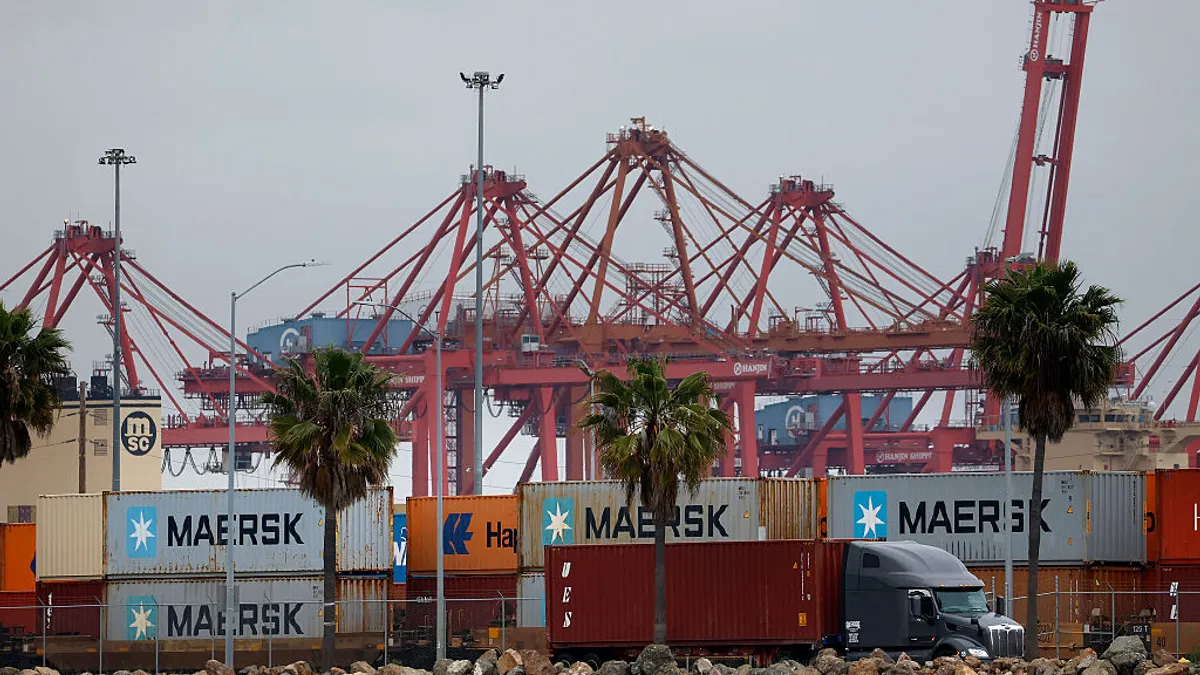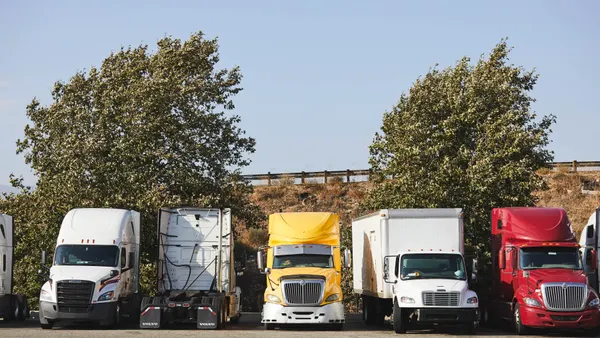Dive Brief:
- The Port of Los Angeles has adopted a spending plan to help with its transition of drayage fleets to zero-emissions models, according to a May 22 press release.
- The spending plan, unanimously approved by the Los Angeles Board of Harbor Commissioners, will guide how the port allocates revenue from its Clean Truck Fund, or CTF, through June 2028.
- “The Clean Truck Fund is a short-term strategy to maximize results,” Port Executive Director Gene Seroka said in the release. “This money puts more ZE trucks in Port service faster by lowering the cost of purchasing them while ensuring the charging and fueling infrastructure is there to keep them moving.”
Dive Insight:
The Port of Los Angeles is moving forward with its efforts to transition to zero-emissions truck fleets, despite legislative uncertainty surrounding the future of electric vehicles.
The port collects funds through its CTF rate. Cargo owners pay $10 for every loaded TEU hauled by diesel drayage trucks through the Port of Los Angeles. Larger containers are hit with a $20 fee. Permanent exemptions on the rate exist for cargo owners that use zero-emissions trucks.
With the approval from the Board of Harbor Commissioners, the port will continue to prioritize CTF revenue on charging and fueling infrastructure projects along with vouchers to make zero-emissions trucks affordable.
“Without vouchers, the average cost of a new Class 8 truck that runs on battery-electric power … is about $420,000 and those fueled by hydrogen average $750,000,” according to the release. But vouchers and funding from the California Air Resources Board can help trucking firms cover up to 90% of the up-front costs of a zero-emissions truck purchase.
Currently, 546 zero-emissions trucks operate at the Port of Los Angeles and the Port of Long Beach, according to the port. Most of those trucks were purchased using CTF vouchers or from similar incentives from other agencies.
The news comes at a time when uncertainty surrounds legislation around emissions reduction in the transportation industry.
Congress revoked the waiver authorizing California’s Advanced Clean Trucks rule, known as ACT. The policy would have required 75% of Class 8 trucks sold in the state to be zero-emissions vehicles by 2035. Other states, such as Massachusetts, New Jersey and New York, have debated or passed legislation delaying implementation of the ACT rule.
In addition, the California Air Resources Board's Advanced Clean Fleets Regulation is now on hold. The regulation would have required all new trucks entering drayage service in California to be zero-emissions models by 2035.













